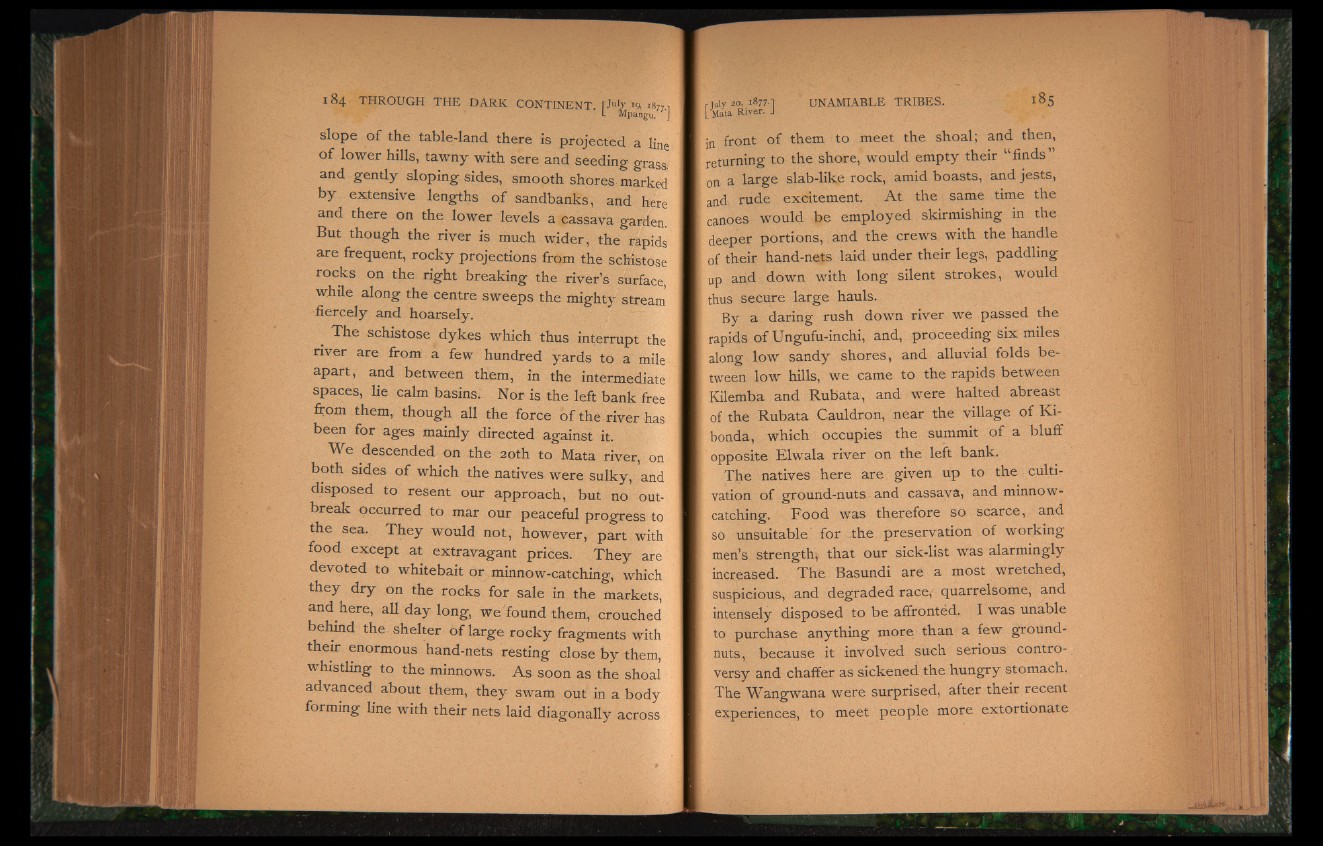
slope of the table-land there is projected a line
of lower hills, tawny with sere and seeding grass
and gently sloping sides, smooth shores marked
by extensive lengths of sandbanks, and here
and there on the lower levels a cassava garden.
But though the river is much wider, the rapids
are frequent, rocky projections from the schistose
rocks on the right breaking the river’s surface,
while along the centre sweeps the mighty stream
fiercely and hoarsely.
The schistose dykes which thus interrupt the
river are from a few hundred yards to a mile
apart, and between them, in the intermediate
spaces, lie calm basins. Nor is the left bank free
from them, though all the force of the river has
been for ages mainly directed against it.
We descended on the 20th to Mata river, on
both sides of which the natives were sulky, and
disposed to resent our approach, but no outbreak
occurred to mar our peaceful progress to
the sea. They would not, however, part with
food except at extravagant prices. They are
devoted to whitebait or minnow-catching, which
they dry on the rocks for sale in the markets,
and here, all day long, we found them, crouched
behind the shelter of large rocky fragments with
their enormous hand-nets resting close by them,
whistling to the minnows. As soon as the shoal
advanced about them, they swam out in a body
forming line with their nets laid diagonally across
in front of them to meet the shoal; and then,
returning to the shore, would empty their “ finds”
on a large slab-like rock, amid boasts, and jests,
and rude excitement At the same time the
canoes would be employed skirmishing in the
deeper portions,< and the crews with the handle
of their hand-nets laid under their legs, paddling
up and down with long silent strokes, would
thus secure large hauls.
By a daring rush down river we passed the
rapids of Ungufu-inchi, and, proceeding six miles
along low sandy shores, and alluvial folds between
low hills, we came to the rapids between
Kilemba and Rubata, and were halted abreast
of the Rubata Cauldron, near the village of Ki-
bonda, which occupies the summit of a bluff
opposite Elwala river on the left bank.
The natives here are given up to the cultivation
of ground-nuts and cassava, and minnowL
catching. Food was therefore so scarce, and
so unsuitable for .the preservation of working
men’s strength, that our sick-list was alarmingly
increased. The Basundi are a most wretched,
suspicious, and degraded race,' quarrelsome, and
intensely disposed to be affronted. I was unable
to purchase anything more than a few groundnuts,
because it involved such serious controversy
and chaffer as sickened the hungry stomach.
The Wangwana were surprised, after their recent
experiences, to meet people more extortionate